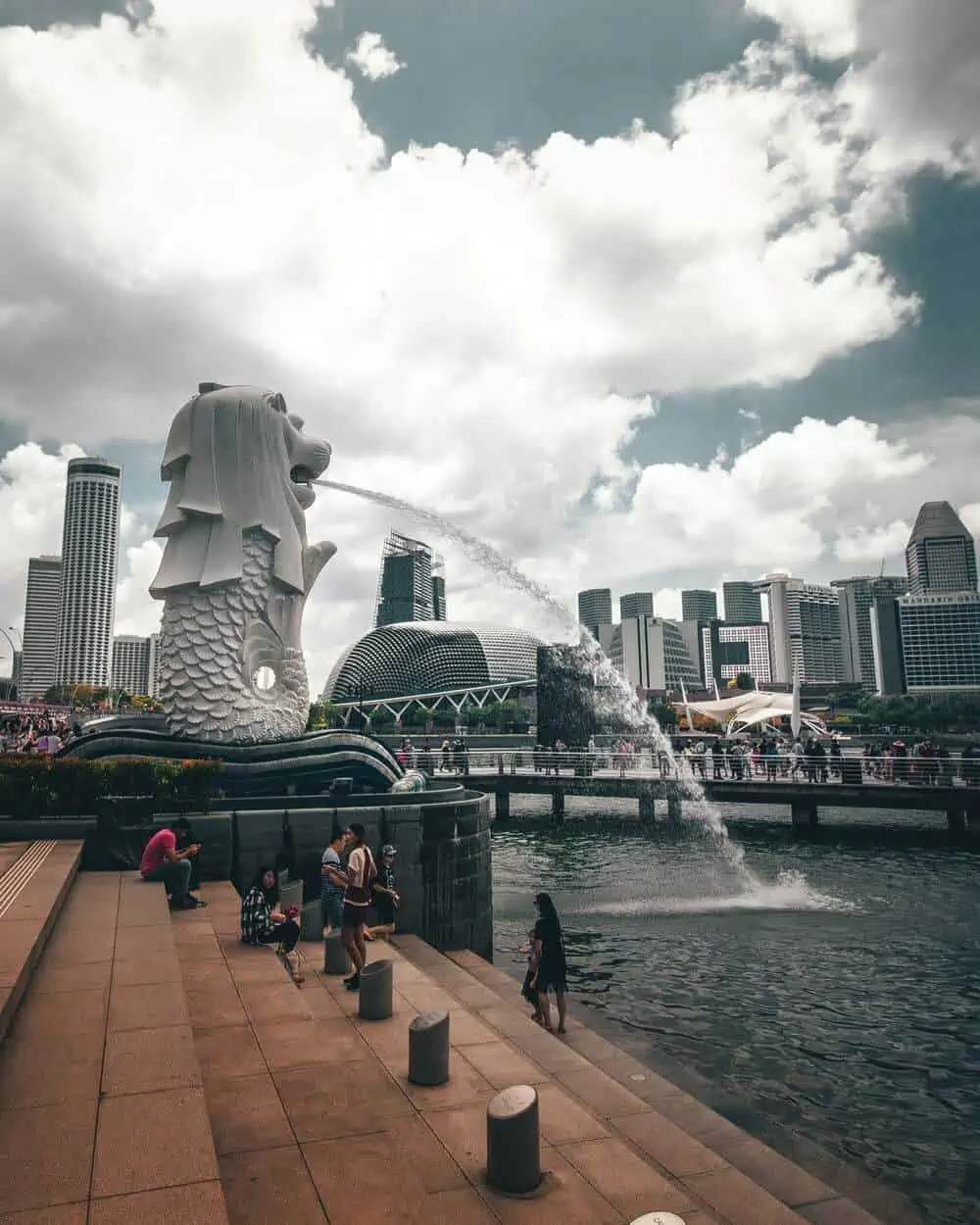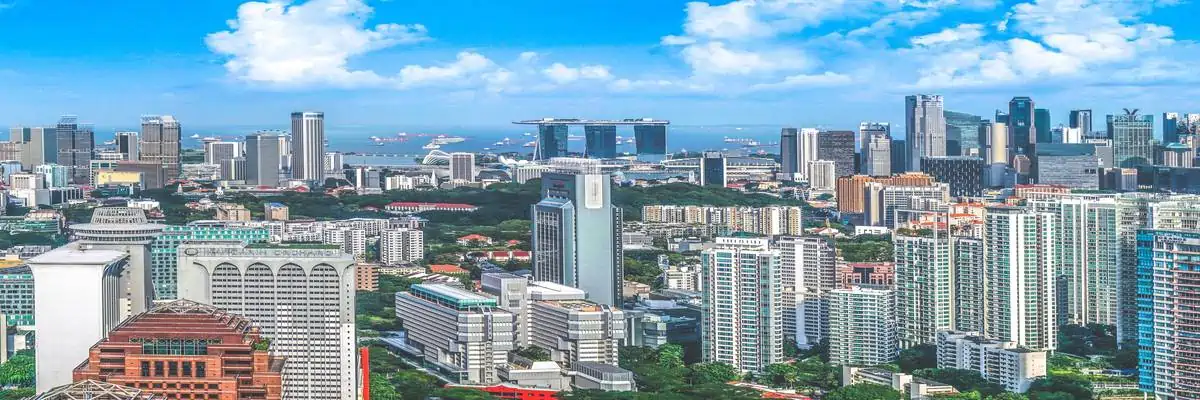How can an Umbrella Company Help with Contracting in Singapore?
Most freelance workers aren’t superheroes who successfully tackle these issues all on their own. There are companies who specialise in helping workers make the most out of their contracts.
They’re called Umbrella Companies (or, contractor management companies).
Basically, an Umbrella Company acts as your full-time employer, even though you maintain your independence as a contractor. They collect and filter payments from your clients, filtering out the necessary social security and fees. You send them your timesheets, and they send you payments.
Because they act as your “employer,’ they can sponsor you and provide a single work permit for multiple contracts in Singapore. Even better, most are experts in Singaporean and expat tax law, meaning they’ll also help you optimise your earnings in Singapore.
Although the Umbrella Company is technically your “employer,” you’re essentially freeing yourself to work even more independently. You still dictate your contracts, your hours, your schedule. The Umbrella Company simply filters out the time-consuming admin and immigration issues, allowing you to focus on your new contract.
Can I Organise My Taxes and Work Permit Myself?

Generally, you need to have an employer sponsor in order to secure the appropriate work permit and work visa for Singapore.
If you’re working independently, it can be difficult to find clients willing to sponsor you. Moreover, even if your client can do this, you’ll need a new sponsor each time you decide to take on a new contract. Of course, every new sponsor will mean more paperwork.
Also, are you familiar with the intricacies of the tax system in Singapore, as well as your own country’s laws on overseas earnings? If so, good on you!
However, if you’re like the rest of us, figuring out (much less reducing) your tax liability in Singapore and your home country can seem like full-time work in itself.
A Contractor’s Guide to Taxes in Singapore
One of the most consistently challenging aspects of contracting in Singapore is complying with the country’s tax system. As well as paying tax in Singapore, you might also still be eligible to pay some tax in your home country, and understanding the legislation behind this can be a challenge.
How do I calculate my taxable income in Singapore
If you’re working in Singapore under a permanent contract, many employers will handle your tax under the PAYE (pay-as-you-earn) system. This means that they calculate and process your taxes in Singapore for you and then send you a net wage. Your income tax, public health insurance, social security and other deductions will all be covered by this payment. This is the easiest way to handle your income tax in Singapore, but contractors may not be offered this service because of their short stay with each employer.
Anybody who can’t pay their tax in Singapore through PAYE is left with the prospect doing everything themselves.
Do you know much about Singaporean Tax Law? Does Singapore have a tax treaty with your home country? You will need to find out or find someone who can help! Income tax in Singapore can range from 0 to 22 percent, and you need to be sure you are placed in the correct tax brackets.
Tax Filing as a Contractor in Singapore
| When Do You Need to Lodge Your Tax Return? | 15 April |
| Tax Filing Deadline | 15 April |
| Can you file it online? | Yes, https://mytax.iras.gov.sg/ESVWeb/default.aspx |
How to File Taxes in Singapore as a Contractor
The IRAS website(link is external) has detailed instructions on how to file your taxes in Singapore.
Do I Need to File Taxes?
You must file an Income Tax Return if you receive a letter, form or an SMS from IRAS informing you to do so. You are not required to file an Income Tax Return if you have received a Non-Filing Service (NFS) Letter. If your employer is participating in the Auto-Inclusion Scheme (AIS), you do not need to report income received from this employer (but you may still be required to file a tax return). Your employer will submit your employment income information to IRAS by 1 March.
Step 1: Obtain a SingPass or IRAS PIN
SingPass is a password you can use to access all Government e-Services. You can apply for SingPass here(link is external) and should receive it within 4 working days. To be eligible for SingPass, you must be one of the following:
- A Singapore citizen
- A permanent resident
- A pass-holder (Employment Pass, EntrePass, S-Pass, Dependant Pass, Long Term Visit Pass Plus)
- A selected work permit-holder
Alternatively, you may apply for an IRAS PIN here(link is external). You should also receive it within 4 working days.
Step 2: Prepare Documents
Make sure you have these documents and information ready, before logging onto the myTax Portal:
- SingPass / IRAS PIN
- Form IR8A (if your employer is not participating in the Auto-Inclusion Scheme)
- Particulars of your dependants (e.g. child, parent) for new relief claims
- Details of rental income from your property and other income, if any
- Business Registration Number / Partnership Tax Reference Number (for self-employed and partners only)
Step 3: Log in to myTax Portal
Log in to myTax Portal with your SingPass / IRAS PIN. Click on “Individuals” > “File Form B/B1” to start. The form will take about 5-10 minutes to complete. Your session expires if you leave it idle for more than 20 minutes.
Step 4: Verify Existing Details
IRAS will pre-fill the following information for you in the online tax form:
- Income, deductions and reliefs from organisations participating in the Auto-Inclusion Scheme e.g. employment income;
- Reliefs claimed by you in the previous year e.g. Qualifying Child Relief, Foreign Maid Levy Relief; and
- Tenanted property information based on the preceding year’s tax declaration and/or e-Stamping records.
Check that all pre-filled information is accurate and complete. Please contact the relevant organisation directly if there are any discrepancies. The organisation will resubmit the information to IRAS if there are errors in the original submission.
Step 5: Update Existing Tax Reliefs
If you have previously claimed any reliefs but no longer qualify for them, please remove the pre-filled sections when you e-File. You can make amendments.
If you qualify for additional or new reliefs, please include them when you e-File.
Step 6: Declare Other Income Sources
If you have received any other sources of income which are not-prefilled (e.g. rental income in the previous year), you need to declare the income in the tax form.
Step 7: Receive Acknowledgement Receipt
An acknowledgement page will be shown after you have e-Filed successfully. Save a copy or print the page for future reference.
Your Notice of Assessment (NOA) or tax bill will be set to you between the end of April and September. If you have income that is not shown in the NOA or your relief claims in the NOA are incorrect, please inform IRAS within 30 days from the date of your NOA.
For more detailed information, check out the following links on the IRAS website:
Tax Figures in Singapore
| Currency | Singaporean Dollar (SGD) | ||||||||||||||||||||||||
| Tax-free Threshold in Singapore | SGD20,000 | ||||||||||||||||||||||||
| Income Tax Rates |
|
||||||||||||||||||||||||
|---|---|---|---|---|---|---|---|---|---|---|---|---|---|---|---|---|---|---|---|---|---|---|---|---|---|
| Notes | The tax table above applies to residents only. Non-residents are generally subject to tax at flat rates. Employment income is taxed at a 15% flat rate, or at the resident tax rates, whichever is higher. |
Tax Residency in Singapore
When do you become a tax resident in Singapore
You become a tax resident in Singapore when:
- You are issued with a work visa that is valid for at least 1 year;
- You stay or work in Singapore for at least 183 days in a calendar year; 183 days for a continuous period over 2 years; or continuously for 3 consecutive years.
Does the 183 day rule apply in Singapore
Yes
Am I taxed on my global income in Singapore
Residents: If you are a resident, you will only be taxed on global income brought into Singapore prior to 1 January 2004. Foreign-sourced income brought into Singapore on or after 1 Jan 2004 is tax-exempt.
Non-residents: Non-residents are only taxed on Singaporean-sourced income.
Can you set up your own Limited Company in Singapore?
| How long does it take to set up | 3 days |
| How much does it cost | SGD385 |
| Is it easy? | Starting a Business Rank: 6/190 (Source: World Bank) |
Tax Calculator in Singapore
If you are a contractor and want a calculation on your tax and net retention in Singapore, we can supply it to you free of charge.
Using an Umbrella Company for Income Tax in Singapore
Contractors in Singapore are faced with masses of paperwork and numerous wasted hours filing a tax return unless they find an alternative option. A Singapore umbrella company can act as your employer during your stay in the country whilst still allowing you the freedom of a contractor. The only difference is that you submit your timesheets to them; they’ll calculate and pay your taxes as you earn, and then you receive a net wage (as well as documentation for your records).
The companies are experts in Singaporean taxation, and they’ll ensure that you keep the largest proportion of your earnings whilst complying with local laws. They can deal with any issues with the Singaporean tax office or tax department directly including processing your tax refund if you are eligible.
How We Can Help You with Tax in Singapore
We work with numerous umbrella companies in Singapore, many of whom are experts in tax and immigration laws. If you have any questions about tax in Singapore, we’ll get the answers from them directly so you can rest assured you’ll be getting accurate information. We have comprehensive knowledge of the different services they provide, and can help you find the right company to handle your income tax. We help oil and gas workers, software developers, IT project managers, testers, business analysts and telecommunications contractors get tax efficient payments and sponsorship for their Singaporean work permit.
Our advice is 100 percent free, and comes with no obligations. You will be paying taxes in Singapore but without the overhead of directly dealing with the Singaporean tax authorities. Get in touch with us today for some reliable advice on tax in Singapore!
A Contractor’s Guide to Work Permits in Singapore
Immigration is one of the primary concerns for any contractor hoping to start working in Singapore. Permanent employees will find it easy to get their Singaporean work permit because they’ll receive “sponsorship” for their entire stay from their prospective employer.
The Singaporean work permit, known more commonly as a Pass, is dependent on this sponsorship because it confirms that you’ll be earning money during your stay in the country. Contracting in Singapore is more difficult because the work permit is tied to one employer, so you have to change it to suit each new contract. Thankfully, umbrella companies provide a convenient and effective solution to this issue.

How Does an Umbrella Company Work?

Most people want to do their work, earn their money and enjoy their spare time without taking on loads of admin in a new country. That is why an umbrella company can help.
When you’re working through an Umbrella Company, you’ll essentially be outsourcing the admin and tax issues to specialists.
While the umbrella company will charge a fee, you’ll likely end up saving more money in the long run: you’ll be able to focus on your work, expertly reduce your tax liability, and comply with all laws and regulations in Singapore (which means avoiding fees, fines, or even worse penalties).
How Can We Help You?
There’s a huge variety of Umbrella Companies with different specialities and advantages in Singapore. How do you find the right one for your circumstances?
We work closely with Umbrella Companies all throughout Singapore and match contractors with the right company for them. If you’ve already secured a contract in Singapore, we can help you find your best match (for free). Or, we can simply give you feedback on your situation (for free).


